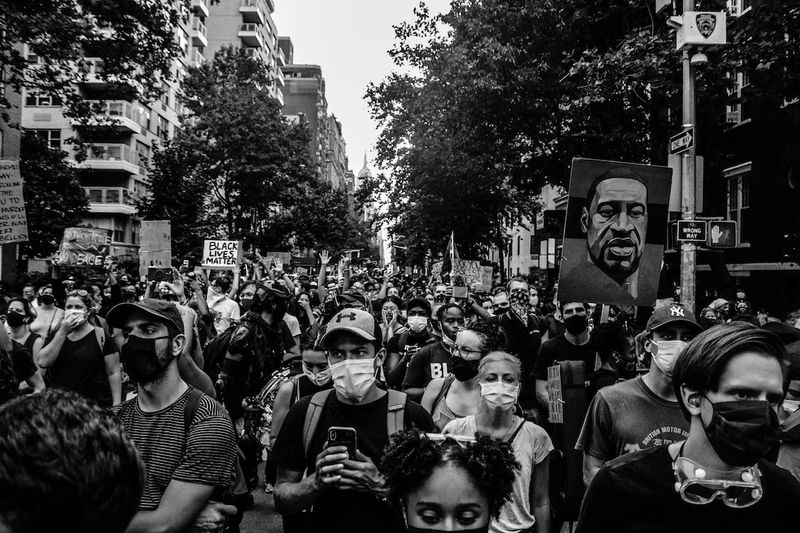Table of Contents
India: Investigate Alleged Police Bias in Manipur Violence
Human Rights Watch has called on Indian authorities to immediately investigate and hold those responsible for the ongoing killings in Manipur state. Violent clashes between different ethnic groups and security forces have left at least 70 people dead, 35,000 displaced, and over 1,700 houses destroyed since May 3, 2023.
Roots and Development of Violence
The violence emerged after protesters from tribal groups gathered to protest the plans to give the majority Meitei community protected status as a Scheduled Tribe. The protest, accompanied by violent clashes between various ethnic and religious groups resulted in the looting of weapons and ammunition from police stations, which further fueled the ongoing violence.
The BJP-run state government has been accused of encouraging divisions and promoting Hindu majoritarianism, especially in the state where Meitei’s are predominantly Hindu. Activists have accused groups affiliated with the government of targeting Kuki properties, businesses, and churches. The authorities had earlier evicted tribal villagers from forest areas, accused Kukis of illegal poppy cultivation, and ordered the demolition of three churches in Imphal, saying they had been constructed illegally.
Furthermore, Kuki community members have accused the police of taking sides and even joining violent mobs against them, while the police have denied any bias. To this end, the police brutality and alleged bias call into question the neutrality of state security forces tasked with ensuring stability and public safety.
Abrupt Shutdown of Internet Services
Authorities in Manipur state have also extended restrictions on internet services, from May 3 to May 31, in a bid to stop the spread of disinformation and false rumors, and to prevent the mobilization of mobs. However, several media reports suggest that the complete internet blackout has severely hindered information gathering and reporting by the media and civil society groups.
Human Rights Watch said that the Manipur government should abide by the UN Basic Principles on the Use of Force and Firearms by Law Enforcement Officials which provide that security forces use minimum necessary force at all times. Law enforcement officers may only intentionally resort to lethal force when strictly unavoidable to protect life. When death or serious injury occurs, a detailed report should be promptly sent to the competent authorities.
Philosophical Underpinnings
The situation in Manipur highlights the tensions between different groups that possess historical and structural inequity and discrimination. The government’s affirmative action efforts to address the imbalance have not adequately quenched the thirst for justice and fairness among the different groups, resulting in renewed violence and calls for justice. Authorities should recognize that such situations require listening, engaging, and investing in the communities to adequately address their concerns without bias and partiality.
Moreover, the sudden internet shutdown in Manipur state violates the freedom of expression, access to information, and online-related activities that are fundamental human rights. The drastic action taken by the Indian government to completely cut off the internet is concerning and is not a solution to address the situation. The Indian government should explore more effective measures that are less intrusive and better aligned with human rights principles.
Editorial and Advice
The Indian government should act urgently to address the situation in Manipur as the ongoing violence between different groups has resulted in significant loss of lives, displacement, and destruction of property. To this end, Indian authorities should work with community leaders to restore security, impartially investigate the killings and police bias claims, and hold those responsible accountable.
Additionally, we advise the Indian government to uphold the fundamental rights of citizens, including access to information and expression, even in situations of conflict and unrest. The Indian government should be impartial when dealing with different groups from different ethnic and cultural backgrounds and not occupy a partisan position in ongoing disputes.
Failure to address the root causes of the Manipur situation may fuel anger, mistrust, and revenge, resulting in ongoing cycles of violence. Authorities must involve communities in addressing their concerns, and redress grievances through dialogue and peaceful means.

<< photo by Jakayla Toney >>
You might want to read !
- “The Deadly Effects of Tear Gas: A Global Look at Its Misuse Against Protesters – Interactive Website”
- Why Meta Shareholders Must Prioritize Rohingya Reparations and Human Rights on the Global Agenda
- Why regulating Big Tech is crucial for protecting human rights in the US
- The Democratic Republic of Congo: Suppressing Dissent Through Brutal Force
- Landmark Treaty to Deliver Justice to Victims of Atrocities Agreed by Global States